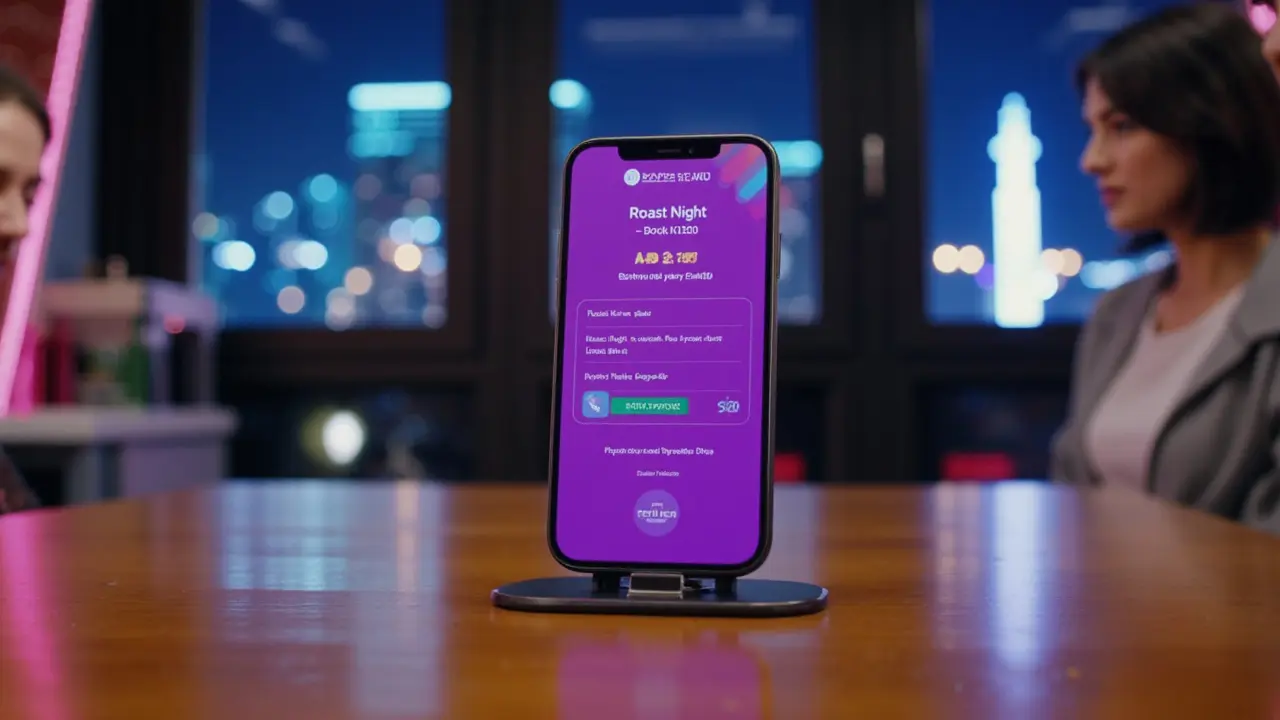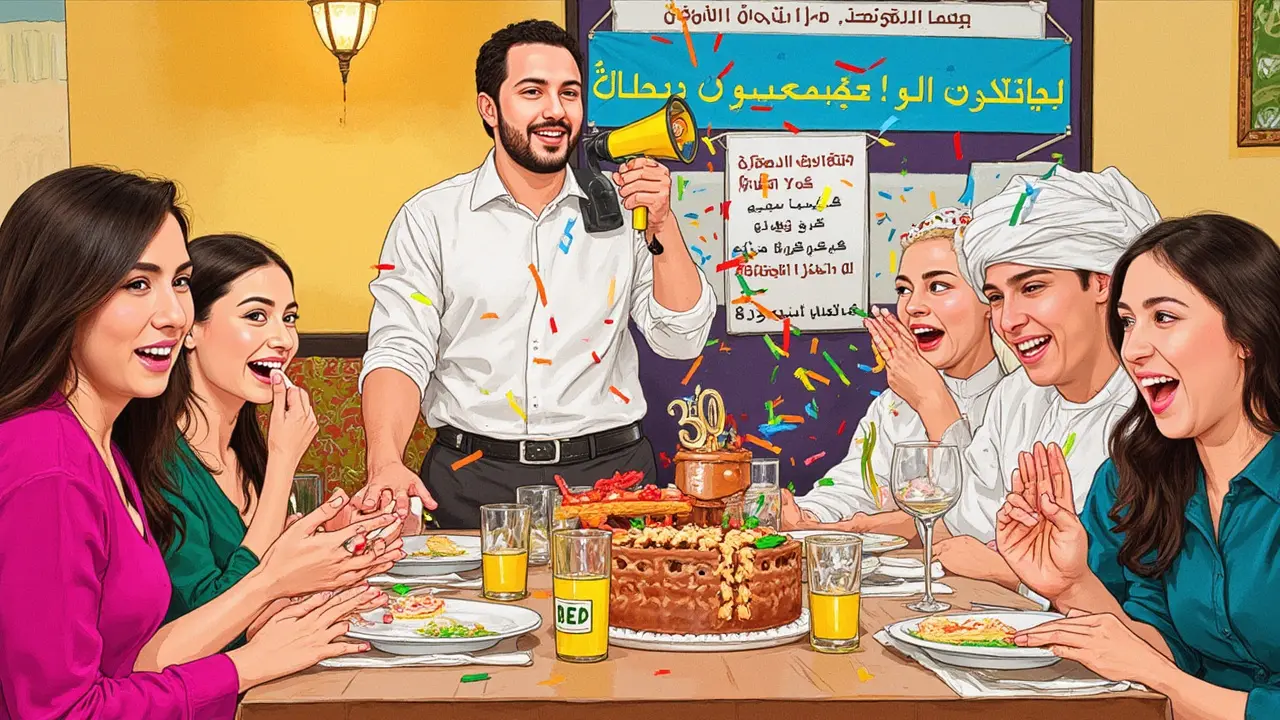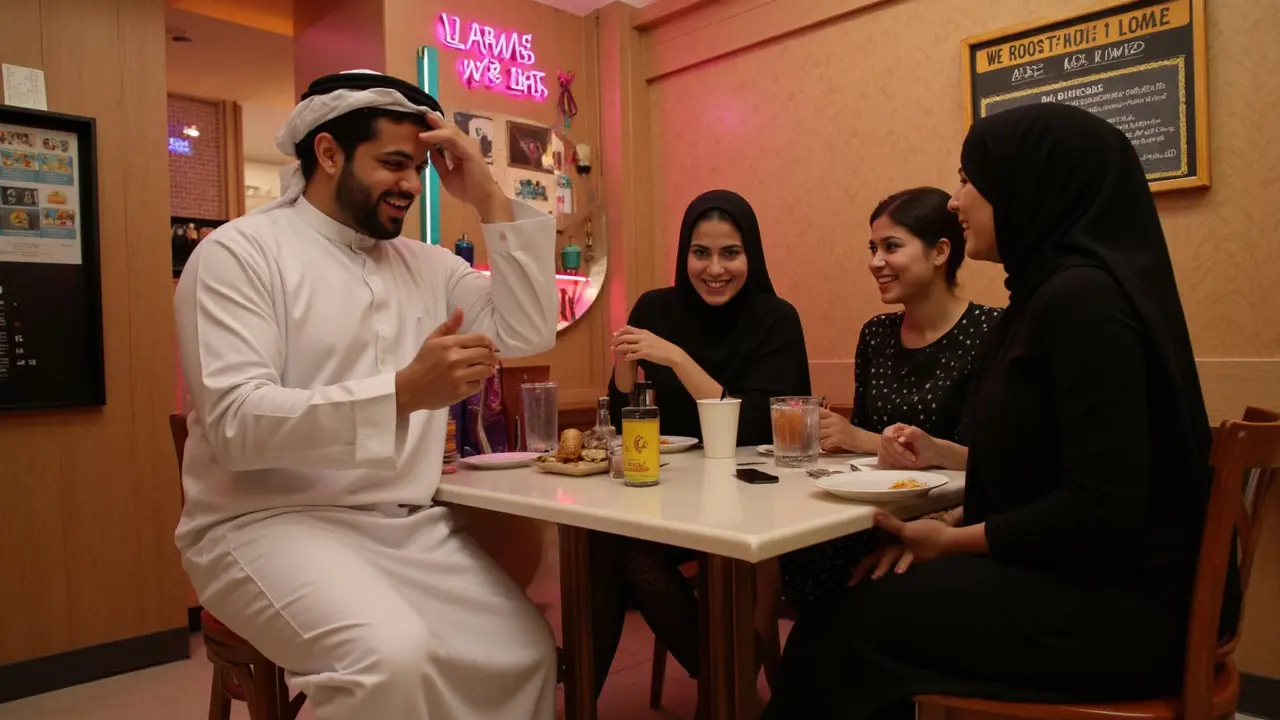You heard the rumor about a restaurant where the servers roast you on purpose. It’s real, and it’s meant to be funny, not cruel. The short answer most people are looking for is Dick’s Last Resort in the United States. Outside the US, Karen’s Diner pops up a lot. There are others too, like Ed Debevic’s in Chicago and The Wiener’s Circle, famous for late-night smack talk. If you want the quick facts, I’ve got you. If you want the full guide, that’s here too.
Direct Answer and Key Takeaways
Direct answer: The restaurant most people mean when they ask about the place where they “harass” you is Dick’s Last Resort in the US. If you’re in the UK, Australia, or catching a touring experience, that’s often Karen’s Diner. Chicago has its own legends with Ed Debevic’s and The Wiener’s Circle. It’s a comedy bit, not actual abuse. You’re opting into a show where sarcasm, roasts, and over-the-top sass are the theme.
- Names to know: Dick’s Last Resort, Karen’s Diner, Ed Debevic’s, The Wiener’s Circle.
- What you get: playful insults, silly hats with roasts, choreographed sass, sometimes dancing servers or shouty hot-dog counter vibes.
- Family fit: Ed Debevic’s is usually more PG-13. Dick’s varies by location and time of day. Karen’s Diner shows often skew 16+ or 18+. The Wiener’s Circle is mostly adult late at night.
- Cost range: food about 15 to 35 per person, drinks extra. Some touring Karen’s Diner shows add a 15 to 45 ticket or booking fee.
- Booking: Dick’s and Ed Debevic’s often take standard reservations. Karen’s Diner is sometimes ticketed or runs pop-ups, so book ahead online. The Wiener’s Circle is mostly walk-up.
How to find one near you in two minutes:
- Search your maps app for these exact terms: “Dick’s Last Resort,” “Karen’s Diner,” “Ed Debevic’s,” “Wiener’s Circle,” or simply rude restaurant.
- Check Instagram and TikTok for recent posts. These places live on video and short clips.
- If you see “Karen’s Diner Tour” or “Karen’s Pop-Up,” grab tickets early. Dates sell out fast.
- Scan recent Google reviews by month. You’ll see how spicy the banter gets and if it’s kid-safe at your target time.
Fast reality check: it’s a show. There are house rules. No slurs, no touching, no crossing lines. If you’re not into insults, skip it. If you are, pace yourself, laugh, and don’t take it personally.

Complete Guide to Rude Restaurants: What They Are, Options, Prices, and How to Book
What are we talking about exactly? Think comedy-club energy mashed with diner food. The staff plays characters who roast you, toss napkins, write a ridiculous insult on your hat, or sing and dance while dishing out snark. You go here to be in on the joke. If anyone crosses your line, you can say so. The good ones make it safe and fun, not mean-spirited.
Why people love it: it’s different. Birthdays, bachelor or bachelorette nights, team outings, and tourist trips all land better when there’s a story to tell. You will remember getting called out for your salad order. You will keep the paper hat photo forever. That’s the hook.
The main players:
- Dick’s Last Resort - Longtime US chain with rowdy energy and those famous paper hats. Expect loud, messy fun and servers who sling sarcasm as fast as beer.
- Karen’s Diner - Aussie-born insult dining that tours globally and does pop-ups. It leans hard into the “complain-to-the-manager” meme. Many shows have age guidance.
- Ed Debevic’s (Chicago) - Retro diner with sassy, dance-happy servers. It’s playful and theatrical, with PG-13 quips that work for mixed groups.
- The Wiener’s Circle (Chicago) - Legendary late-night hot-dog stand where the clap-backs are part of the order. After dark, the roasting gets spicy. Daytime is tamer.
How to choose the right one for you:
- Family outing - Ed Debevic’s is your safest bet. Afternoon or early evening at Dick’s can work too. Ask the host about kid-friendly hours.
- Adult night out - Dick’s, Karen’s Diner shows, and The Wiener’s Circle late-night window are made for that OTT energy.
- Tourist must-do in Chicago - Ed Debevic’s for a sit-down show vibe. Wiener’s Circle if you want raw, classic Chicago sass with your char dog.
What to expect when you go:
- Greeting - You might get ignored for comedic effect or welcomed with a roast. Roll with it.
- Seating and props - At Dick’s, the server might craft a hat with a ridiculous line about you. Take the photo, it’s part of the deal.
- Service style - Fast, loud, and intentionally snippy. Servers stay in character. If you’re not into it, tell them to tone it down. Good staff can calibrate.
- Menu - Burgers, ribs, fried stuff, big shareable plates, plus beer and cocktails. Ed Debevic’s leans diner classics. Wiener’s Circle is hot dogs, burgers, and fries.
- Timing - Plan 60 to 90 minutes for a full sit-down spot. Pop-ups or tours can be fixed-time seatings.
Etiquette that keeps it fun:
- Don’t get personal with sensitive topics. Stick to the bit.
- No touching staff. They won’t touch you either.
- Laugh and play along, but know your boundary. If a line gets crossed, say so clearly.
- Tipping is still normal. You’re paying for performance on top of food.
Price ranges you can expect in 2025:
- Food - Around 15 to 35 per person for mains and sides.
- Drinks - Draft beer 6 to 10, cocktails 10 to 18 depending on the city.
- Extras - Some Karen’s Diner events add a ticket of 15 to 45 per person. Special events or holidays can add premiums.
How to book the easy way:
- Look up the exact venue on your maps app and tap through to the official site or booking partner.
- For Karen’s Diner pop-ups, buy tickets in advance. Choose your time slot and check the age rating.
- Group of 8 or more - call ahead or use the events form to lock in a table or group package.
- Note special occasions when booking. Many spots will roast the birthday person extra hard on request.
Pro tips before you go:
- Time your visit - Earlier hours are usually lighter on language. Late nights get spicier.
- Set ground rules with friends - If anyone prefers light banter, let the server know upfront.
- Tell them about allergies at the start. Comedy stops when health is involved.
- Bring a sense of humor. Leave thin skin at home.
Common pitfalls to avoid:
- Bringing small kids to a late-night show and then being surprised by adult language.
- Chirping back in a way that targets a server personally. Keep it playful.
- Assuming every location is the same. Chains vary by city and even by shift.
| Venue | Where You’ll Find It | Vibe | Typical Spend | Kid-Friendly | Booking Style |
|---|---|---|---|---|---|
| Dick’s Last Resort | Multiple US cities | Loud, rowdy, paper-hat roasts | 25 to 45 per person with a drink | Varies by time - earlier is milder | Reservations or walk-in |
| Karen’s Diner | Touring pop-ups, UK, Aus, select US | High-energy insult show | 15 to 35 food + 15 to 45 ticket | Often 16+ or 18+ | Ticketed time slots |
| Ed Debevic’s | Chicago | Retro diner, sassy, dance numbers | 20 to 40 per person | Generally PG-13 | Reservations recommended |
| The Wiener’s Circle | Chicago | Late-night counter roast culture | 10 to 20 per person | Daytime ok, late is adults only | Walk-up |
How to find one near you, step by step:
- Maps search - Type each venue name and also “insult dining,” “rude servers restaurant,” or “comedy service restaurant.”
- Check Stories and Reels - Recent clips show menu, tone, and crowd vibe. You can judge if it’s your style.
- Scan the last 10 reviews - Look for mentions of hat jokes, server names, and whether management responds to complaints.
- Call for content rating - Ask about kid-safe hours and language levels if you’re bringing family.
Safety and respect checklist:
- Know the code - No hate speech, slurs, or harassment outside the act. Staff stays in character, but boundaries apply to everyone.
- Opt out if you want - Tell the host you’d like light banter. Good teams can keep it gentle.
- If something feels off - Ask for a manager. You can leave. You still deserve decent food and a safe space.

Comparisons, FAQs, and What To Do Next
Not sure if a roast restaurant beats a regular night out? Here’s a quick comparison to help you decide.
| Experience | Rude Restaurant | Traditional Restaurant |
|---|---|---|
| Atmosphere | Loud, interactive, comedic roasting | Polite, controlled, predictable |
| Memorability | High - you’ll tell stories for weeks | Moderate - depends on food and service |
| Best For | Birthdays, bachelor or bachelorette nights, teams | Date nights, business dinners, family meals |
| Risk Level | Medium - humor isn’t for everyone | Low - standard expectations apply |
| Prep Needed | Check age rules, book tickets for pop-ups | Usually none beyond a reservation |
| Budget | Food 15 to 35, plus drinks and possible ticket | Food 15 to 35, drinks extra |
FAQ: quick answers people ask all the time.
- Is it real harassment? No. It’s a comedy act with house rules. If someone crosses a line, you can speak up.
- Can I bring kids? It depends. Ed Debevic’s is usually fine for teens. Dick’s can be family-friendly earlier in the day. Karen’s Diner and The Wiener’s Circle skew adult.
- Do I need a reservation? Often yes for groups or weekends. Karen’s Diner pop-ups usually require tickets.
- What if I don’t like the jokes? Tell the server to tone it down, ask for a manager, or leave. You’re in control of your comfort.
- Is tipping normal? Yes. You’re tipping on service and performance.
- What should I wear? Anything casual. Expect a messy napkin toss at Dick’s, so maybe skip white silk.
- Food quality - is it good? It’s comfort food. Go for fun first, food second. Still, check reviews by location.
- Best time to go? Early evening for lighter language, late night for the full blast.
- Allergies and dietary needs? Tell them before ordering. They take that seriously.
- Can I roast back? Lightly, yes. Keep it clean and never personal beyond the bit.
Next steps based on your plan:
- Birthday crew - Book a weekend slot, tell them who the target is, and bring a charged phone for photos. Set a budget for drinks and a shared dessert.
- Family night - Choose Ed Debevic’s or an early table at Dick’s. Ask the host for the mild section. Pick a weekday for less rowdy crowds.
- Corporate team - Call ahead for a group package. Ask for a roast level of 5 out of 10 so it stays inclusive.
- Date night - If your date loves comedy, go. If they’re shy, maybe start with a standard diner and keep this as a round two plan.
- On a tight budget - Hit The Wiener’s Circle for the cheapest entry to the culture. Daytime is milder and cheaper.
Troubleshooting if things go sideways:
- Server went too far - Say, “Hey, can we keep it light?” If needed, ask for a manager. Good teams adjust fast.
- Food took too long - The act is loud, but the ticket times still matter. Ask for an update without breaking character if you want.
- Group vibe mismatch - Before ordering, agree on the roast level. One sensitive friend can set a boundary for the table.
- Pop-up canceled - Tickets usually offer a refund or new date. Check the event page and your confirmation email.
One-liner to remember: this is theater with fries. Pick the venue that matches your comfort level, set expectations with your group, and you’ll have the funniest dinner story in the room.
